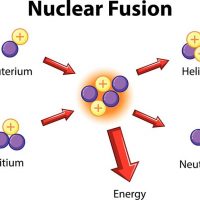Aluminum is a corrosion resistant, low density and ductile metal. It is common, indeed it is the most abundant metal found in the Earth’s crust. But is aluminum magnetic?
Is aluminum magnetic?
The common belief is that aluminum isn’t magnetic. Whilst this is generally true under most circumstances, the truth is actually a little more complicated than it first appears.
That’s because when exposed to a high enough magnetic field, just about all matter will show at least some magnetic property. And this is true of aluminum too. So under the right circumstances, aluminum will indeed show some magnetic attraction. In general though, you won’t notice any magnetism in everyday use.
In everyday conditions, aluminum is not magnetic.[
To explain a little more deeply, aluminum has 13 electrons, which means it has an unpaired electron. Materials with an unpaired electron are considered to be what is known as “paramagnetic”.
When a magnetic field is applied to paramagnetic materials they are attracted to it, that is its dipoles align with the external field and hence with the other dipoles in the material.
When the external magnetic field is removed, the paramagnetic materials dipoles don’t remain aligned (as is the case with ferromagnetic materials), they become randomly mixed up due to thermal motion.










